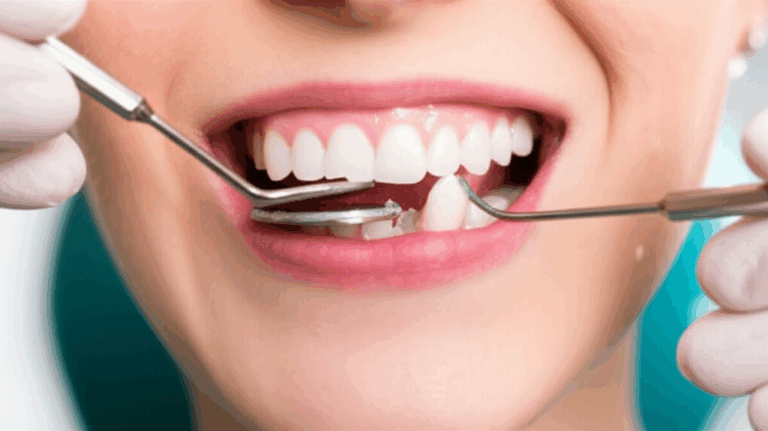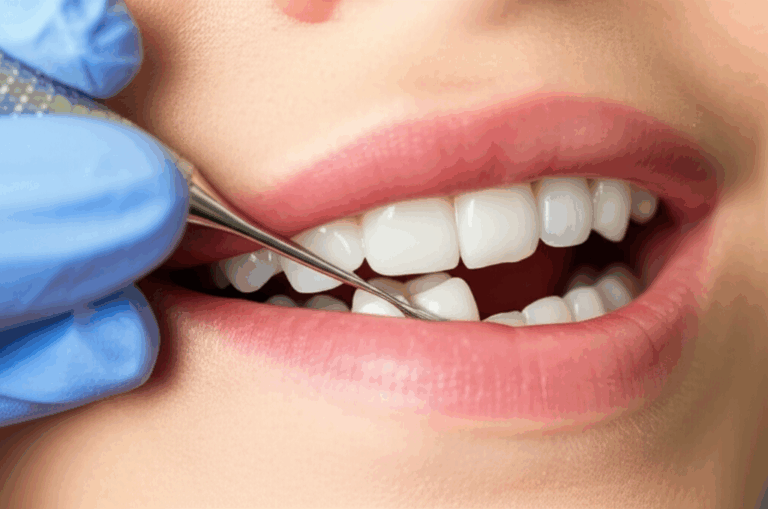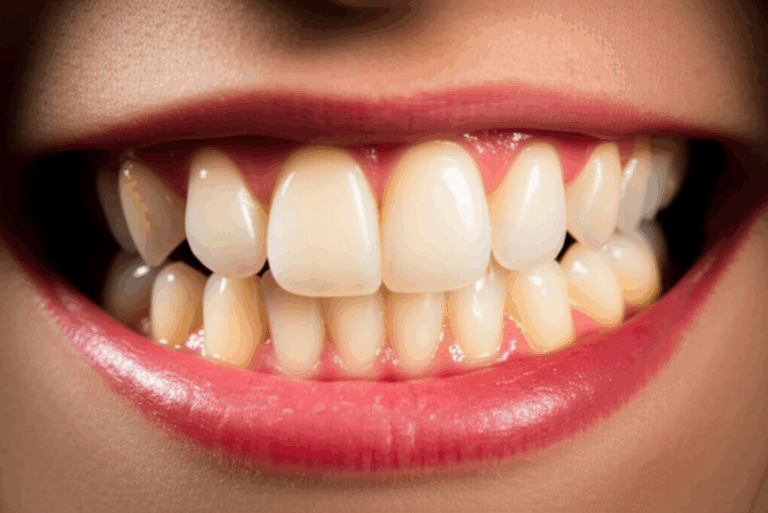
How a Dentist Becomes an Oral & Maxillofacial Surgeon: Your Comprehensive Guide
Are you a dentist who thinks about doing bigger surgeries like taking out wisdom teeth or fixing broken jaws? Want to know if it’s possible to become an oral and maxillofacial surgeon? This guide tells you all about taking this exciting road.
Table of Contents
What Does “Becoming an Oral Surgeon” Mean?
Oral surgeons, whose full name is oral and maxillofacial surgeons (OMS), are not the same as normal dentists. While general dentists fix cavities and put in crowns, oral surgeons do bigger surgeries in and around the mouth, face, and jaws. They are good at:
- Taking out stuck wisdom teeth
- Fixing broken jaws
- Doing tricky dental implant work
- Treating face injuries and growths
If you want to be an oral surgeon, you’ll need extra schooling and training after being a dentist.
Why should you read this? If you want to grow your dental career or are just curious how things work, this article explains the road from regular dentist to surgeon.
Why Would a Dentist Want to Become an Oral Surgeon?
Many dentists love helping patients, but some start looking for a bigger challenge. Maybe you get excited by the thought of surgery, treating injuries, or fixing things like cleft lips and palates. Oral surgery is a hard but rewarding path.
- Problem: Dentists can feel bored doing the same treatments over and over.
- Agitate: You might wish you could help more, or want to make more money. Some cases just feel too tough for general dentistry.
- Solution: Becoming an OMS lets you learn new things, do bigger cases, and find a better job. Plus, oral surgeons often make more money and get to use cool tools, like those found at top digital dental labs.
What Education Do You Need to Start?
To start, you must get a dental degree from a recognized school. This degree is either called a Doctor of Dental Surgery (DDS) or Doctor of Medicine in Dentistry (DMD). Both mean the same thing, just different names.
Here’s the order:
Good news: you don’t need a medical degree yet. But you must have great grades, high test scores (like the Dental Admission Test), and letters from teachers or dentists.
How Hard Is It to Get Into Oral Surgery Residency?
Getting into an OMS residency is tough. These programs only pick about 5-10% of all people who apply, especially at popular schools. Here’s what they want to see:
- Strong school record
- Good test scores
- Experience watching oral surgeons
- Extra school work or volunteering
- Letters that say why you’re great
Some people even do internships or more dental residencies, like an Advanced Education in General Dentistry (AEGD), to have a better chance.
Pro Tip: Find mentors early and ask to watch them doing surgery. Seeing things close up makes your application stronger.
What Happens During OMS Residency?
If you get in, OMS residency is like school for surgeons. It lasts 4-6 years and is very busy. Here’s what you’ll do:
OMS Residency Table
| Year | Main Focus | Rotations & Training |
|---|---|---|
| 1-2 | Learning basic surgery skills | General surgery, anesthesia, ER |
| 3-4 | Big oral surgeries and trauma | Plastic surgery, medicine, ICU |
| 5-6 (if dual) | Medical school and tough cases | Head & neck surgery, cancer, TMJ |
You’ll learn things like:
- Tooth and bone removal
- Placing dental implants (often helped by a good implant dental laboratory)
- Fixing face injuries
- Jaw surgeries
- Cancer operations
- Giving anesthesia (like putting someone to sleep for surgery)
Most of this training is in hospitals where you care for real patients.
What’s the Difference Between OMS and Other Dental Specialists?
You might hear about other dental specialists—so, what makes OMS different?
- Oral surgeons do the biggest range of surgeries in the mouth, face, and jaw.
- Periodontists fix gums and do some implants but don’t operate on jaws.
- Endodontists focus on root canals.
- Orthodontists straighten teeth but don’t do surgeries.
If you want a job that mixes surgery, medicine, and teeth in one, OMS is the way. You’ll also work with other pros, and sometimes use special labs like a china dental lab for custom crowns or ceramic teeth if needed.
Is a Dual Degree Important for Oral Surgeons?
Some OMS residencies give you a dual degree, meaning you get a dental degree (DDS/DMD) and a medical degree (MD). Why does it matter?
- Medical School: Dual programs last about 6 years (instead of 4) since you do some medical school too.
- Learn More: You get extra training for tough surgeries or caring for sick patients.
- Work in Hospitals: Some hospitals say you need an MD to do all the surgeries.
Do you need both degrees? Not always, but it helps if you want the most job choices.
How Long Does It Take and How Much Does It Cost?
Here’s how the training and cost breaks down:
Time Table
| Step | Years | Notes |
|---|---|---|
| College | 4 | Science major helps |
| Dental school | 4 | DDS or DMD |
| OMS residency | 4-6 | Dual programs take longer |
Total time after high school: 12-14 years.
Cost Table
| Step | Cost Estimate |
|---|---|
| College | $40,000-$200,000 |
| Dental School | $200,000-$400,000 |
| Medical School (if dual) | +$150,000-$300,000 |
| Total | $500,000-$700,000 |
During residency, you get a small paycheck, enough to get by, but not as much as working dentists. The cost is high, but it’s an investment in a better career that pays more later.
What Kind of Work Does an Oral Surgeon Do?
As an oral and maxillofacial surgeon, your daily work could be:
- Removing wisdom teeth
- Placing dental implants
- Repairing broken jaws
- Taking out lumps and cysts
- Fixing cleft lip/palate
- Giving anesthesia—from numbing a tooth to putting people fully to sleep
You might work at hospitals, clinics, or your own office. Some surgeons also teach or do research. Many work with places like veneer lab for custom-made dental work.
Is Becoming an OMS Worth It?
Let’s use the PAS steps:
- Problem: Training is long, you get a lot of debt, and learning is hard.
- Agitate: If you don’t really like surgery or helping people in need, it can feel like too much. Burnout happens, especially during long hours in the hospital.
- Solution: But, if you love surgery, solving problems, or fixing lives, oral surgery could be for you. The job pays well—usually $300,000-$450,000, or even more! You’ll help people who really need you and always learn new things.
What Are the Steps for Dentists Who Want to Switch?
Many people become regular dentists before moving to oral surgery. Here’s how they do it:
Many dentists do this every year. Changing careers is possible if you work hard and care about it.
Summary: Key Points to Remember
- Yes, a dentist can become an oral and maxillofacial surgeon with extra training and hospital experience.
- You need a dental degree (DDS/DMD), good grades, and strong skills.
- Oral surgery residency is 4-6 years; dual degree programs take longer.
- It’s very competitive; your application must stand out.
- The job includes surgeries and anesthesia—not just fixing teeth.
- Training is expensive but the salary is high later.
- Working with labs like dental ceramics lab and using digital tools helps oral surgeons with custom work.
- If you love surgery and want to help people in big ways, OMS is a great field.
Frequently Asked Questions
Can any dentist apply to be an oral surgeon?
Yes, any dentist with a DDS or DMD can apply, but you must meet all program rules.
How do oral surgeons differ from general dentists?
General dentists do cleanings, fillings, and crowns. Oral surgeons do bigger surgeries, like fixing jaws or pulling hard teeth, and work with hospitals and special dental labs.
What tests are needed for oral surgery school?
Most need Dental Admission Test (DAT) scores. Some might want GRE or Advanced Dental Admission Test (ADAT) scores.
Is a dual degree needed to be an oral surgeon?
No, but a dual degree (DDS/DMD + MD) gives you more job choices, especially in hospitals.
Can you switch after being a dentist for years?
Yes! Many dentists go back to train as oral surgeons, even after working for a while.
Quick Facts Table
| Fact | OMS Details |
|---|---|
| Degree Needed | DDS or DMD |
| Additional Schooling | 4-6 years residency |
| Dual Degree Option | DDS/DMD + MD, extra 2 years |
| Estimated Total Training | 12-14 years |
| Salary Range | $300,000-$450,000+ |
| Common Procedures | Implants, extractions, trauma |
| Residency Competition | Very competitive |
| Main Professional Body | AAOMS, ABOMS |
| Main Costs | $500,000-$700,000 (school debt) |
- Dental jobs have many paths. If you like hands-on work, solving problems, and helping people in big ways, oral and maxillofacial surgery might be for you.
- Every road starts with a good education and a clear goal.
- The best digital tools and skilled labs are helping oral surgeons do better work every day. Look at top digital dental lab leaders to see how they help both dentists and surgeons.
- The road is long, but the rewards—both for you and your patients—can last a lifetime.








